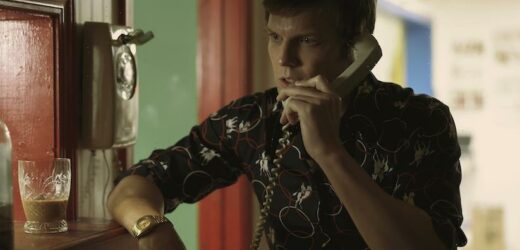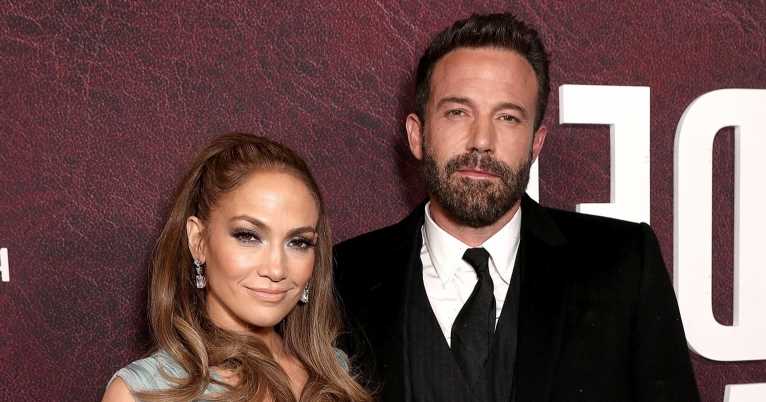In Peacock’s true-crime drama “A Friend of the Family,” Bob Broberg (Colin Hanks) pleads with his wife Mary Ann (Anna Paquin) to help him understand her egregious lapse in judgment. “Don’t you have better sense? It doesn’t make any sense…why would you do such a thing?” Those also happen to be the questions bandied about on Twitter when “Abducted in Plain Sight,” a 2017 documentary about the Brobergs, went viral after landing on Netflix. According to what passes for consensus on social media, while the Brobergs endured a horrible ordeal, they bear most of the responsibility because of the unconscionable decisions they made.
“A Friend of the Family” is written with an acute awareness of the backlash that met the Brobergs after they shared how they were manipulated and nearly destroyed by a malignant narcissist. It begins with a statement from the Brobergs daughter Jan, the primary victim in the story, who serves as a producer on “Family” along with Mary Ann. “I know it may seem unbelievable, but we lived in a different world back then,” Jan says. “I’m telling my family’s story today because so many people believe it could never happen to them.” As compelling and frightening as “Family” can be, it never quite makes the case that what happened to the Brobergs could happen to anyone.
To briefly summarize: Bob and Mary Ann had built a happy, unassuming life in southwest Idaho with Jan and her two sisters. In the mid-‘70s, they met Bob and Gail Berchtold, a couple at their Mormon temple with three kids, just like the Brobergs. The families became fast friends and integrated into one big family unit. Little did Bob and Mary Ann know that the other Bob – nicknamed “Brother B” to avoid the name confusion – had developed an obsession with Jan, then only 12 years old. That obsession only intensified until Berchtold kidnapped Jan and brainwashed her into thinking the survival of an imperiled alien civilization depended on her acquiescing to his sexual advances. Jan eventually came home, but not before Berchtold’s indoctrination had taken root, making it impossible for Bob and Mary Ann to reconnect with her emotionally even once she returned physically.
What makes the Brobergs’ story so fascinating and chilling is the way Berchtold seduced and destroyed the entire family as groundwork for his eventual plans with Jan. Not only did Berchtold groom Jan for abuse, he methodically exploited weak spots in the Brobergs’ marriage, driving a wedge between Jan’s guardians to render her even more vulnerable. Berchtold’s parallel manipulation of Bob and Mary Ann — better left unspoiled for those new to the story — sparked the most confusion and judgment. It’s one thing for an adult to prey on a child, but Berchtold was an equal opportunity predator and didn’t mind destroying anyone in his path to indulge his sick obsession. Why did Bob and Mary Ann give Berchtold so many opportunities to exploit their family? Don’t they have better sense?
“Family” creator Nick Antosca, who previously dramatized weirder-than-fiction crimes in “The Act” and “Candy,” certainly seems to think they do. The series is brimming with empathy for what the family went through, and seems expressly designed to acquit some of Bob and Mary Ann’s more baffling decisions. To its credit, “Family” often does a better job of illuminating their thought processes than they did themselves in “Abducted in Plain Sight.” The Berchtold saga is so lengthy and complex that a 91-minute documentary didn’t leave enough room for it to breathe. Not to mention, the story is told by the Brobergs, who recount it all with the affectless tone of trauma survivors who have fought hard just to view the events through an objective lens.
The scripted version rips away the advantage of hindsight and drops the audience directly into the Brobergs’ vantage point. Each episode begins with an old-timey NBC’s logo and features a title card rendered in a tall, curvy font seldom seen outside its ‘70s milieu. These were very different times, so different that the term “pedophile” had yet to assert itself into the mainstream lexicon. Director Eliza Hittman, coming off the stellar film “Never Rarely Sometimes Always,” renders the Brobergs’ sheltered existence in the same golden, gauzy look of 70s dramas and afterschool specials.
Naturally, a story so hard to comprehend can only be sold through stellar performances, and “Family” is crammed full of them. Hanks and Paquin are terrific as always, and imbue the Brobergs with a fierceness their real-life counterparts only gained through this experience. As for Jan, her role is split between Hendrix Yancey (absolutely stunning here) as the younger version and the promising McKenna Grace as the older version of “Family’s” true protagonist.
But most surprising is Jake Lacy, who toplines as Berchtold, and is frightening enough to obliterate whatever memory of him playing affable sweethearts remains after his heel turn in “The White Lotus.” Watching Lacy reenact the story’s most shocking moments drives home just how far Berchtold was willing to go to surgically remove Jan from her family. Second only to Lacy in the breakthrough performance category is Lio Tipton, who stars as Berchtold’s wife Gail. Tipton arguably has the heaviest lift, given that Gail was equal parts victim and enabler of her husband, and her complicated psychology wasn’t fully explored in the documentary. Tipton manages to anchor the character and lend her a twitchy, unsettling quality reminiscent of Lili Taylor.
The writing is also strong, especially in an episode that shows Berchtold’s insidious methods for turning the Broberg children against their father. But, as is often the case with scripted series adapted from true-crime documentaries, much of what makes the story inscrutable remains so, at least in the six episodes provided to critics. One piece of the puzzle, chief among the “WTF were you thinking” Broberg decisions, is folded into “Family” so subtly that the audience might not even pick up on it without prior knowledge of the events.
If Antosca is trying to avoid the same victim-blaming that followed the documentary, it’s a noble goal. But in insisting that the Brobergs are like any other family, the show sacrifices the opportunity to explore why this family in particular made such a ripe target for Berchtold. “Family” certainly sheds some light on how such an awful thing could happen, but with the light only comes more shadows.
The first four episodes of “A Friend of the Family” premiere on Peacock on Oct. 6, with new episodes then rolling out weekly.
Read More About:
Source: Read Full Article

